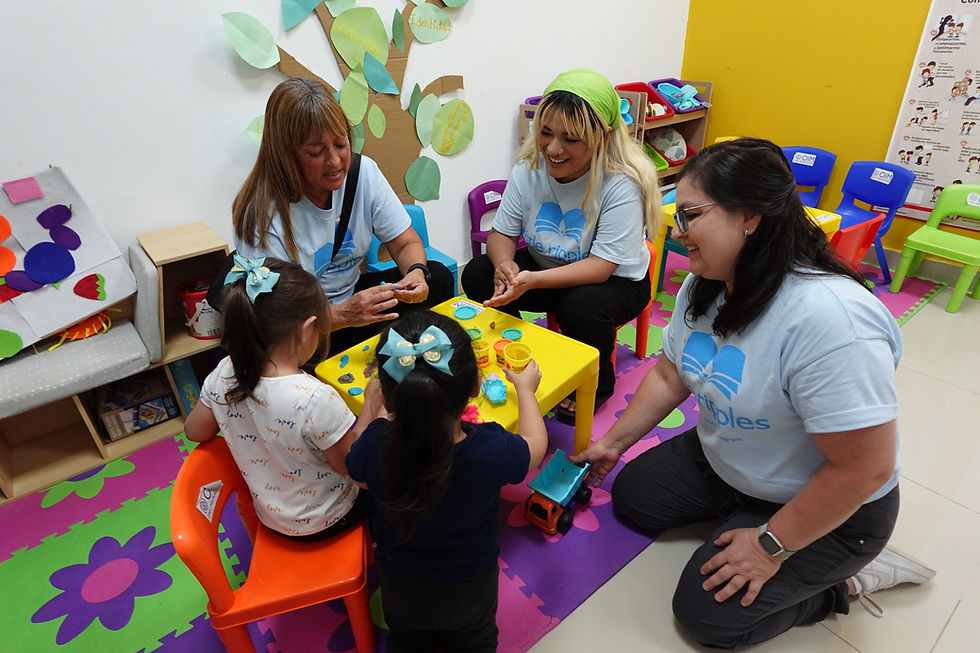Promising Practices in Refugee Education: Invest in Teacher Training
- Sara-Christine Dallain
- Jan 9, 2018
- 2 min read
Updated: Jul 12, 2022
“Teachers are the most important school-based factor in determining the quality of education.” — Promising Practices in Refugee Education Synthesis Report
There is a great need for training of early childhood education teachers and providers in refugee contexts, in which the pivotal role that pre-primary or preschool teachers play in both the learning and well-being of young children under five is even more pronounced. In displacement, adults must focus on daily survival activities such as collecting food rations and looking for work, impeding their ability to fully address the developmental needs of their young children. In this circumstance, teachers can provide a consistent, nurturing relationship and expertise in addressing the needs of young children in their community. However, in refugee settings, teachers are working in challenging and under-resourced environments, often lacking training, materials, and compensation—and we’ve found this to be even more prevalent among refugee teachers at the pre-primary level.
That’s why Little Ripples invests meaningful time and resources in empowering pre-primary teachers. During Little Ripples Teacher Trainings, participants are engaged in active learning and playing, in helping create curriculum and learning tools, and in thinking critically about their behavior and their classroom environment. In the Central African Republic and eastern Chad, 101 men and women (primarily women) have completed at least one Little Ripples Teacher Training. After completing just one training, Little Ripples teachers in refugee camp Djabal, eastern Chad, serving 150 students, reported:
improved relationships with their students,
increased sense of pride in their role and new knowledge,
increased attendance
increase in children’s excitement and positive feelings for preschool, and
improvements in student educational milestones.
These positive changes in both the teacher identity and behaviors of children are a result of the Little Ripples participatory teacher training approach, with which participants learn the tools and techniques to create a classroom environment that is always positive, peaceful, and safe; and children learn through play. Here is what one one teacher in refugee camp Djabal had to say after having completed one Little Ripples Teacher Training:
“My favorite activities during [Little Ripples] training included mindfulness, working in small groups with my peers, using play for learning, and getting to know the other women. The training has impacted me as a teacher and woman. We have learned a new, positive way of dealing with our students. Before, we were negative, even violent and beating the students. Now, we have learned to not be harmful. We learned to speak with children and be at their level, and to speak with them peacefully. And now, my students have changed. Before, they didn’t call me by name. But the children like me now because my behavior has become more positive with them. Now, they see me and call me by name. They like me. They listen to me and they are excited to be at school with me everyday.” —Sima, preschool teacher, refugee camp Djabal
The years before any child—let alone a refugee child facing the added vulnerabilities of displacement—enters primary school are incredibly important. We must invest in training and ongoing support of pre-primary teachers. The future of refugee children depends on it.


